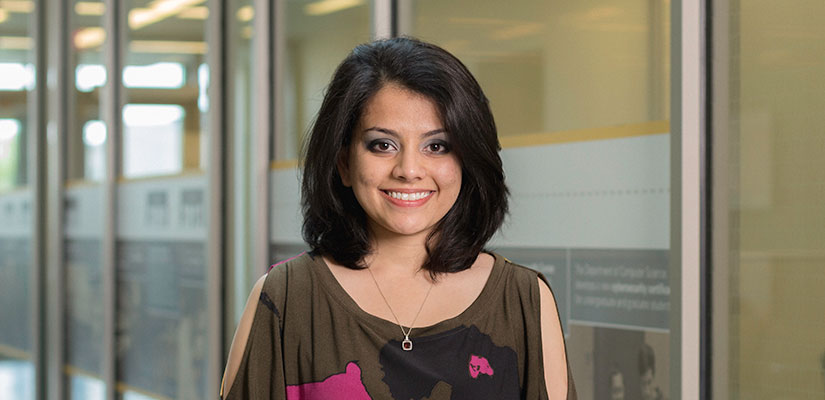Destinations: an IEEE international conference and an NIH-sponsored summer institute on brain stimulation
Farheen Syeda, a mechanical engineering doctoral student, will present her research on brain stimulation at the Institute of Electrical and Electronics Engineers conference in Dublin, Ireland this month. Syeda was selected to receive a travel grant for the IEEE International Magnetics Conference, INTERMAG Europe 2017, from April 24-28.
Syeda joined the group directed by Ravi Hadimani, Ph.D., assistant professor in the Department of Mechanical and Nuclear Engineering, to help establish the new Biomagnetics Laboratory at VCU. Hadimani’s group is focused on safe, non-invasive treatment of neurological disorders by researching how brains respond to magnetic fields.
In the research she will be presenting at the conference, Syeda and study co-authors found that transcranial magnetic stimulation (TMS), a procedure currently used to treat depression, could also be effective in stimulating neurons in which the protective myelin sheath that covers normal neurons has been disintegrating. This is a problem seen in patients with neurological disorders such as multiple sclerosis.
The researchers modeled TMS being performed on neurons ranging from mild to severe deterioration of the myelin sheaths and found that it is still possible to stimulate the neurons even when the sheaths have been completely disintegrated. “It takes a stronger magnetic field,” Syeda said, “but they can still be stimulated.”
After her spring trip to Ireland, Syeda will prepare to attend a three-week summer course at the National Center for Adaptive Neurotechnologies in Albany, N.Y. She will receive funding to participate in the course, which is sponsored by the National Institutes of Health.
In this emerging field, she said, “There are a lot of things that we as engineers don’t know medically about [neural] stimulation. There are a lot of things that clinicians don’t know when it comes to the engineering side of it.” Through this interdisciplinary course, she said, “We get to hear from all of them and bring everybody together.”
Syeda, who graduated with a bachelor of science in physics in 2014, said she is fascinated by the brain stimulation field. “It’s really interesting — it’s really new.” By leading to new therapies to treat many different brain disorders, she said, “It has a lot of potential to help a lot of people.”
